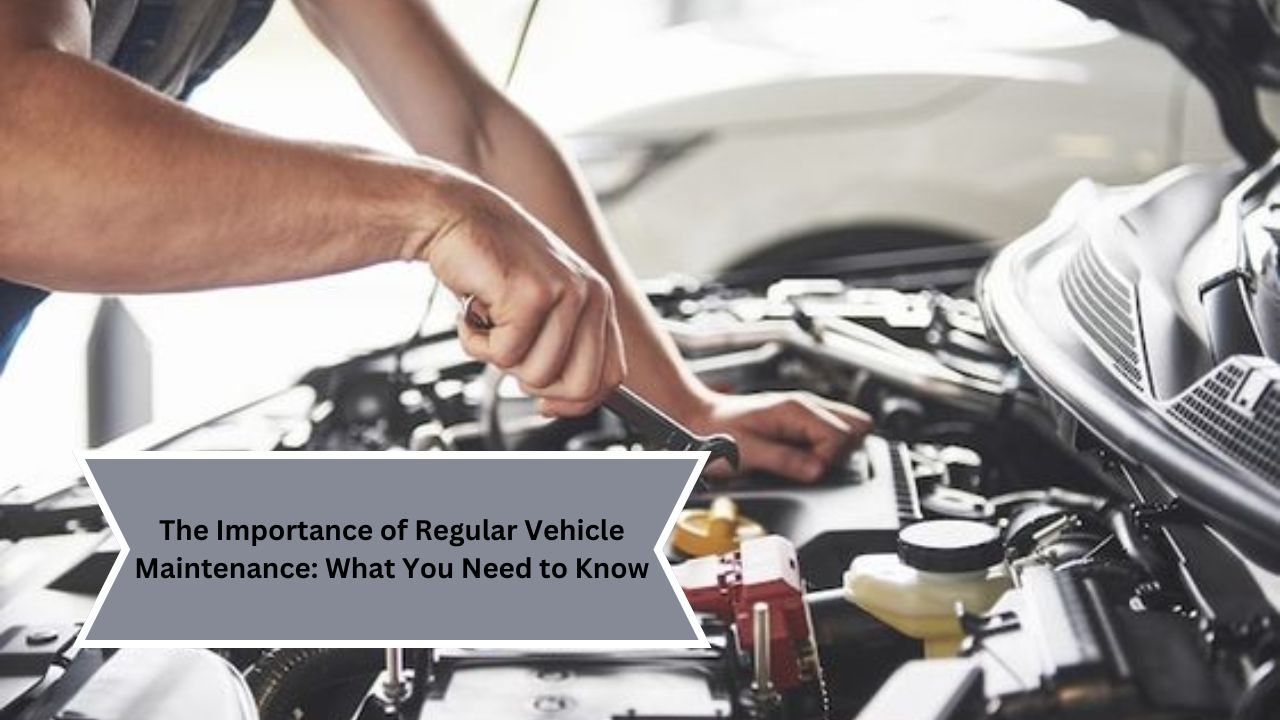Maintaining your vehicle is not just about keeping it clean and looking good; it’s a critical aspect of vehicle ownership that ensures safety, reliability, and longevity. Regular vehicle maintenance can save you from costly repairs, enhance your driving experience, and increase the resale value of your car. In this article, we will delve into the significance of regular vehicle maintenance, what it entails, and the key components that should be regularly checked.
Why Regular Maintenance Matters
1. Safety First
One of the primary reasons for regular vehicle maintenance is safety. A well-maintained vehicle is less likely to experience mechanical failures, which can lead to accidents. Regular checks on brakes, tires, lights, and steering components help ensure that your vehicle operates safely. For instance, worn-out brakes can significantly increase stopping distances, while under-inflated tires can affect traction and fuel efficiency.
2. Reliability
Imagine being stranded on the side of the road due to a preventable issue. Regular maintenance checks can identify potential problems before they escalate, ensuring that your vehicle remains reliable. Whether it’s a battery check or oil change, keeping up with scheduled maintenance helps you avoid unexpected breakdowns and the stress that accompanies them.
3. Cost Savings
While it might seem tempting to delay maintenance to save money, this approach can lead to higher expenses in the long run. Small issues, if left unchecked, can develop into significant problems that require expensive repairs. For example, neglecting an oil change can lead to engine wear and tear, resulting in costly engine repairs or replacements. Regular maintenance can help you avoid these unanticipated costs, making it a smart financial choice.
4. Enhanced Performance
A well-maintained vehicle performs better. Routine checks can optimize fuel efficiency, engine performance, and handling. For instance, a clean air filter and properly inflated tires can enhance your car’s fuel economy, allowing you to get the most out of each tank of gas. Additionally, maintaining your vehicle can lead to a smoother and more enjoyable driving experience.
5. Increased Resale Value
If you plan to sell or trade in your vehicle, regular maintenance records can significantly boost its resale value. Prospective buyers are more likely to be interested in a car with a documented maintenance history. It signals that the vehicle has been cared for, potentially leading to a better price. Buyers often favor cars with a clean service record, so investing in maintenance can pay off when it’s time to sell.
What Regular Maintenance Entails
1. Oil Changes
Oil changes are among the most critical maintenance tasks. Regularly changing the engine oil keeps your engine lubricated and functioning smoothly. Depending on the type of oil you use and your driving conditions, oil changes are generally recommended every 5,000 to 7,500 miles.
2. Tire Maintenance
Tires are the only contact point between your vehicle and the road, making their maintenance crucial. Regularly check tire pressure, tread depth, and alignment. Rotate your tires every 5,000 to 7,500 miles to ensure even wear. Proper tire maintenance improves fuel efficiency and enhances safety.
3. Brake Checks
Brakes are vital for safety, so regular inspections are essential. Have your brake pads, rotors, and fluid checked at least once a year. Listen for unusual sounds when braking and pay attention to how your brakes feel; any changes may indicate a problem that needs immediate attention.
4. Fluid Levels
Your vehicle relies on various fluids to function properly, including coolant, transmission fluid, brake fluid, and power steering fluid. Regularly check and top off these fluids as necessary. Low fluid levels can lead to overheating, transmission issues, and steering problems, compromising safety and performance.
5. Battery Maintenance
A reliable battery is crucial for starting your vehicle. Check your battery regularly for corrosion and ensure it is properly charged. Most batteries last about three to five years, so consider having it tested annually, especially as it approaches the end of its lifespan.
6. Filter Replacements
Your vehicle has several filters, including air filters, oil filters, and cabin air filters. Regularly replacing these filters helps improve engine performance and air quality inside the car. Check the owner’s manual for recommendations on how often to replace these components.
7. Lights and Electrical System
Regularly check that all exterior and interior lights are functioning correctly. This includes headlights, brake lights, turn signals, and dashboard lights. A faulty light can compromise safety, so replacing burnt-out bulbs promptly is crucial.
Establishing a Maintenance Schedule
1. Follow the Manufacturer’s Recommendations
The best way to establish a maintenance schedule is to refer to your vehicle’s owner manual. Manufacturers provide specific guidelines regarding maintenance intervals, which can vary based on make and model. Following these recommendations ensures that you address critical maintenance tasks in a timely manner.
2. Keep Records
Maintaining a log of all maintenance and repairs can help you track what has been done and what still needs attention. This record is also useful when discussing your vehicle’s history with a mechanic or potential buyer.
3. Consult Professionals
While many maintenance tasks can be performed by car owners, some require professional expertise. Regularly visiting a certified mechanic for comprehensive inspections can help identify issues you might overlook. A professional can provide advice tailored to your vehicle’s specific needs.
Conclusion
Regular vehicle maintenance is essential for ensuring safety, reliability, and performance. It not only saves you money in the long run but also enhances your driving experience and increases the resale value of your vehicle. By following a consistent maintenance schedule and keeping up with critical checks and services, you can enjoy peace of mind and the benefits of a well-maintained vehicle. So, invest the time and effort in your car’s maintenance—it’s a small price to pay for safety and reliability on the road.

